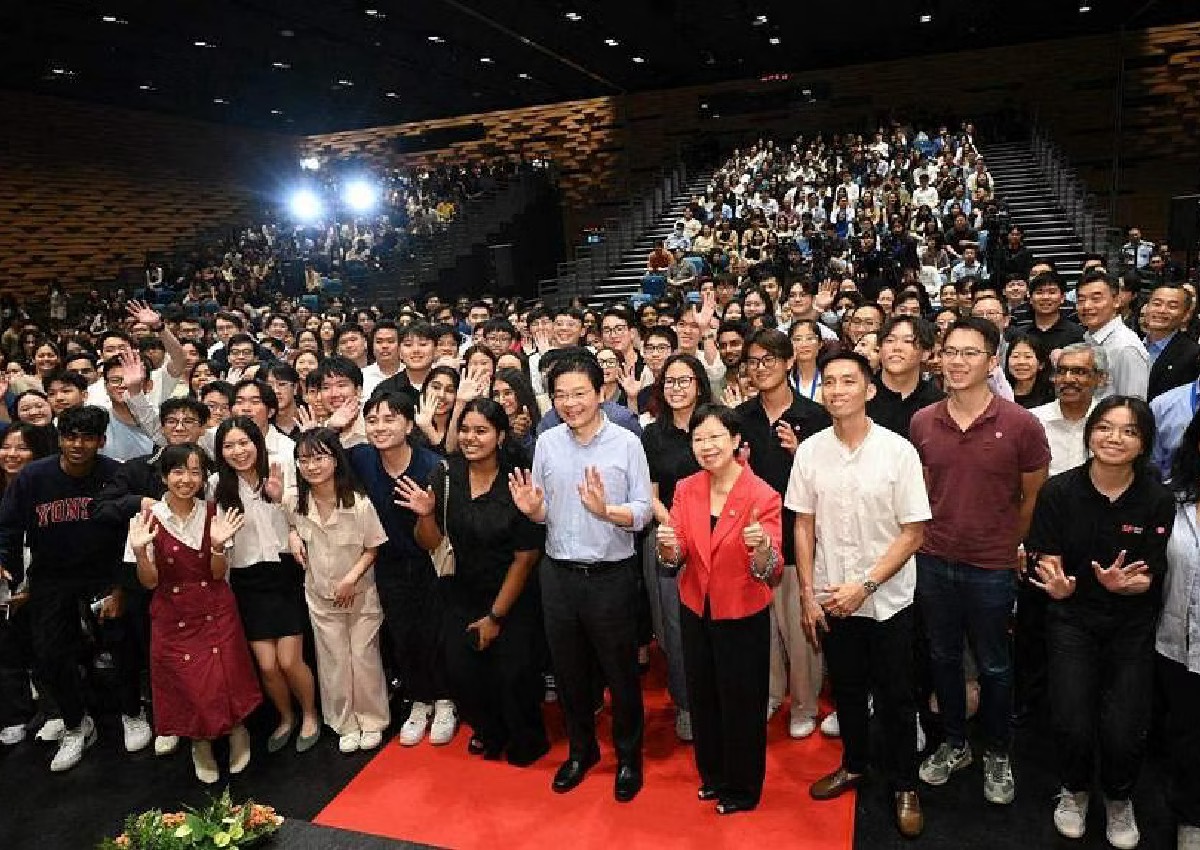PM Wong answers questions at youth dialogue, including on conflicts of interest and why MPs are allowed to have full-time jobs


SINGAPORE - Allowing MPs to have a full-time job is a pragmatic arrangement, Prime Minister Lawrence Wong said at a dialogue with students on July 2.
Responding to a question on why this is permitted, he noted that all political office-holders, such as ministers, also have to balance between their full-time job governing and their duties as MP.
"In the same way, just to be pragmatic about it, we recognise that some people have other private sector commitments," he said. "We let them do it, but we fully expect them to discharge their MP duties well."
There are consequences when MPs fail to do so, he said. Either the party decides not to renew them, or voters do so.
"Voters will know if their MP is working hard or not. And voters can decide," said PM Wong.
Here are PM Wong's responses to some questions that students asked.
The same student also asked if Singapore deems it a conflict of interest if politicians push the agenda of their backers or corporate interests ahead of the state's interest, as is the norm in some countries.
PM Wong said Singapore has a process where conflicts of interest have to be declared, and it has not had a problem to date.
The Government is and will always be very vigilant about keeping the system clean, as Singapore will be in deep trouble if money politics and vested interests seep in, he added.
"We want to make sure that whoever represents Singaporeans as Members of Parliament, regardless of party (and) across the board, we want to make sure that we have a system that is clean and has integrity," he said.
For as long as the People's Action Party has the mandate of the people to govern, it will implement the difficult but necessary policies to move Singapore forward, and will try its best to persuade Singaporeans to understand and support these policies, said PM Wong.
It did so when it raised the goods and services tax (GST) rate from seven to nine per cent, he said in response to a question about how the Government will communicate unpopular policies in view of increasing political contestation here.
This was not so popular, but necessary because the Government has to make sure it balances its budget and pays for the measures it introduces, he said.
In its efforts to persuade the people, it will not get 100 per cent support, and maybe not even 75 per cent support, he said. But if the Government can get the majority of Singaporeans to understand, then some difficult but necessary policies can still be implemented, he added.
"If we... continue to have the mandate from the people to govern Singapore, then we will continue with the same approach, which is to reject populism but to do the right things that are in the best interests of Singapore and Singaporeans," said PM Wong.
Singapore is taking mental health very seriously, PM Wong said in reply to a question about efforts on this front.
He cited the inter-agency task force formed to address this, and the National Mental Health and Well-Being Strategy it launched in October 2023.
The strategy entails expanding mental health services in a push to treat the issue coherently and holistically.
Parliament also had a full debate on the issue in February 2024, when the Government set out its thinking and how it will invest more in mental health capabilities at various levels, from hospitals to the larger community.
This is because a lot of mental health issues are not necessarily clinical, and do not need to be treated by a specialist, said PM Wong.
For instance, some of the help can come from school counsellors or general practitioners, while more serious cases are then handled by doctors.
"We are reinforcing and putting in more resources across all of these levels. That is the essence of our strategy," he said.

It is not sustainable to rely just on the elderly and foreign workers to fill low-wage jobs, said PM Wong.
That is why Singapore has progressive wages for cleaners, security workers, technicians and landscape workers, where salaries are being raised in line with skills and productivity improvements, he said, replying to a question about what is being done to make such jobs more attractive.
Besides pay, it is also about having good career options in these sectors such that someone who joins at the entry level can eventually become a supervisor or run a department, he added.
Even then, people have to be realistic that there are sectors, such as construction, where it will not be possible to fill all positions with Singaporeans, he stressed.
"There will still be a lot of manual work that migrant workers will help us do, and we appreciate them for it," he said.
The goal is to have Singaporeans working as supervisors and project managers, or doing building information modelling, which is the creation of digital models to plan and manage construction works.
"These are good jobs that Singaporeans can do, and then we can work together as a team," he said.
ALOS READ: Strategy to reach younger people? PAP welcomes social media influencers as Friends of the party
This article was first published in The Straits Times. Permission required for reproduction.